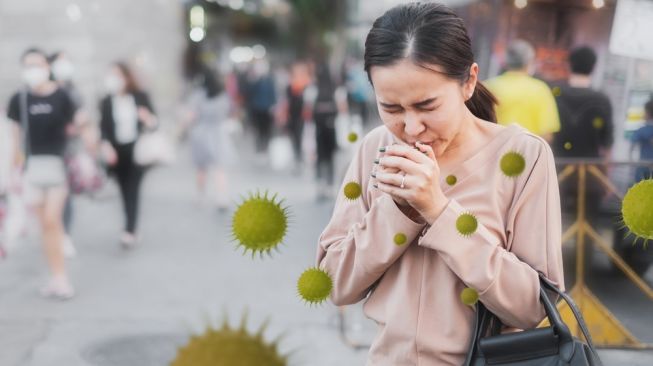<!–
Suara.com – For scientist in Houston, the US discovered the cause of the widespread rapid spread of the coronavirus (SAR-CoV2). Covid-19 is thought to have mutated continuously over the course of its extensive transmission.
In a study released Wednesday (23/9), scientists exposed 5,000 genetic sequences of the coronavirus that reveal its accumulation viral mutation persistence, one of which may be making it even more contagious.
However, the new report did not find that these mutations made the virus more lethal or changed clinical outcomes. As launch Among, Saturday (26/9/2020), quoting from Washington Post, all viruses accumulate genetic mutations, and most are insignificant.
Corona viruses such as SARS-CoV-2 are relatively stable as the virus spreads, because they have a self-correcting mechanism as they replicate.
The study says that each mutation is a “roll of the dice” (multiple possibilities), and with transmission so widespread in the United States – which continues to see tens of thousands of new confirmed infections every day – the virus has many opportunities to change, potentially with consequences that are troublesome.
The latest study, which has not yet been peer reviewed, has been uploaded on MedRxiv. This appears to be the largest single aggregation of viral genetic sequences in the United States so far.
A larger set of sequences was published earlier this month by scientists in the UK, and, like the Houston study, concluded that mutations that alter the structure of the “protein spike” on the surface of the virus may be driving the spread too large.
David Morens, a virologist at the National Institute of Allergy and Infectious Diseases (NIAID), reviewed the new study and said the findings suggest a strong possibility that the virus, as it has passed through the population, becomes more contagious, and this “may have implications for our ability to control it. . “
Morens notes that this is a single study, and “you don’t want to over-interpret what this means.” But the virus, he said, has the potential to respond – through random mutations – to interventions such as wearing masks and social distancing.
“Wearing a mask, washing hands, those are all barriers to transmission, but as the virus becomes more contagious, it is statistically better to increase those barriers,” said Morens, senior adviser to Anthony S. Fauci, director of NIAID.
–

:quality(80)/cdn-kiosk-api.telegraaf.nl/87d144f6-ff52-11ea-946a-02d1dbdc35d1.jpg)
